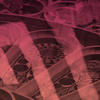Replicating reality
Growing up in working class neighborhoods of a developing nation, she says there was little support for a life of whimsy. Most students were to select a career path by their earlier teenage years, and pursuit of anything other than meat-and-potato professions in medicine, law, or engineering was considered a ticket to failure.
Undeterred, Uchendu-Oji focused on the arts. She and fellow classmates rabble-roused, organizing a student arts festival and raising money to pay for it. The effort was so successful they flipped the position of a key school administrator, who doubled down by providing additional funding to hire a DJ and decorate the space.
“I think that’s just who I am,” Uchendu-Oji says. “Wherever I go I try to logically understand how a society is. And if it doesn’t make sense … I start to be rebellious.”
Now, Uchendu-Oji wants to apply her outlook on much larger horizons. She sees the world balancing on a precipice between real and virtual and believes 3D designers will be essential in building what comes next.
Picture a world in which instead of FaceTiming a loved one, you sit in your living room and converse with their lifelike hologram beside you. Or, instead of the doldrums of Brady Bunch-style Zoom meetings, you enter a fully three-dimensional virtual conference room. That’s the future she plans to help build.
“It’s replicating the world,” Uchendu-Oji said. “In a couple of years, designers are going to be heavily, heavily depended on.”



